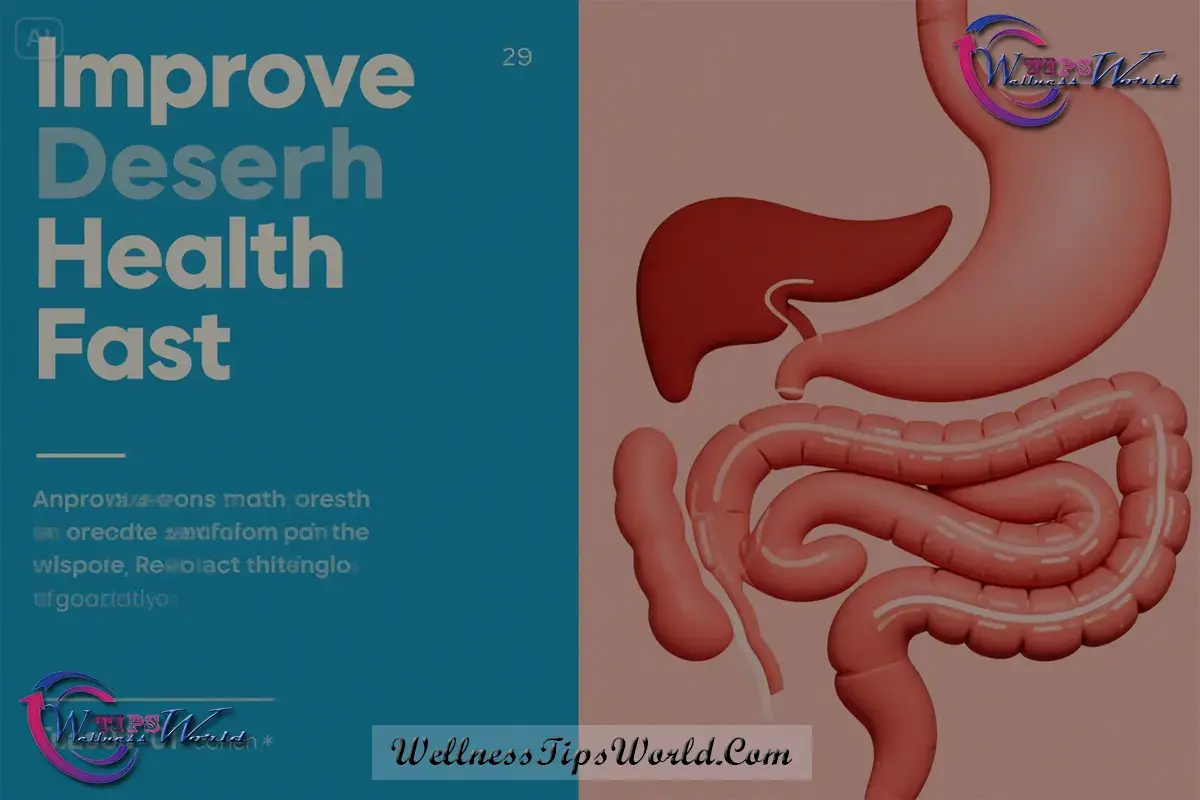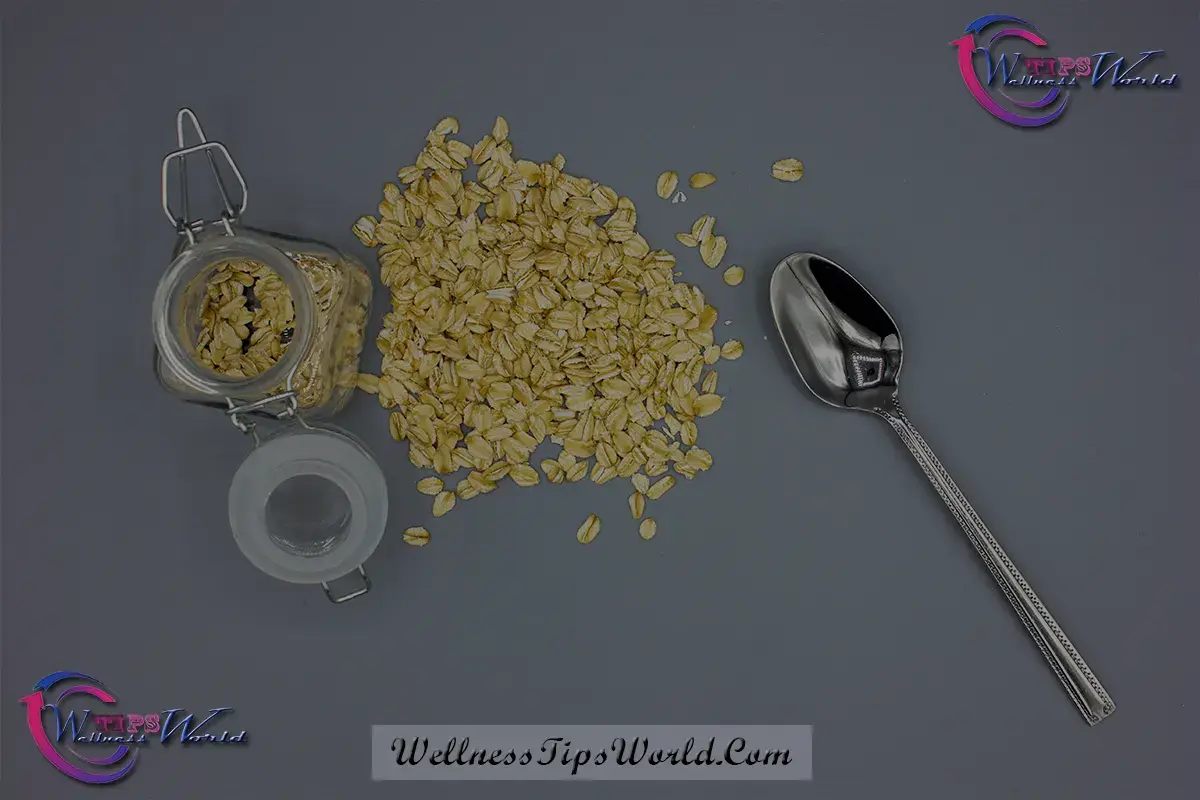5 Foods That Improve Digestion Naturally
-
91
- 20 Apr, 2025

Are You Feeding Your Gut Right?
Let’s face it—digestive problems are more common than ever. Whether it’s occasional bloating, sluggish digestion, or chronic issues like IBS, millions of people struggle with keeping their gut health in check. But what if the answer to better digestion wasn't found in a pill, but on your plate?
This article reveals 5 foods that improve digestion naturally, backed by science and loved by nutritionists. These ingredients don’t just ease digestive discomfort—they help create a thriving gut ecosystem, making you feel lighter, healthier, and more energized. Time to treat your gut like royalty—serve it the goodness it deserves.
Why Digestion Matters More Than You Think
Your digestive system isn’t just a food factory—it’s the command center of your well-being. It plays a central role in nutrient absorption, immune support, mental health, and even hormone regulation. When digestion is off, it affects everything—from your mood and metabolism to your skin and sleep.
Poor digestion can cause:
- Bloating and gas
- Constipation or diarrhea
- Indigestion and acid reflux
- Food sensitivities
- Fatigue and brain fog
Improving digestion naturally starts with the right gut-friendly foods—the ones that nourish your body and support your microbiome.
1. Leafy Greens: The Fiber-Fueled Gut Guardians
Keyword: Leafy greens for digestion
Dark, leafy vegetables like spinach, kale, arugula, and Swiss chard are some of the most nutrient-dense foods on the planet—and your gut loves them.
Why Leafy Greens Help Digestion:
- Rich in fiber: Promotes regular bowel movements and prevents constipation.
- High in magnesium: Relaxes muscles in the digestive tract for smoother digestion.
- Feed beneficial bacteria: Leafy greens contain unique compounds like sulfoquinovose that support a healthy microbiome.
How to Eat:
- Toss into salads or smoothies
- Sauté with olive oil and garlic
- Blend into green soups
Bonus tip: Choose a variety of greens to maximize nutrient diversity for your gut flora.
2. Fermented Foods: The Probiotic Powerhouses
Keyword: Fermented foods for gut health
Fermented foods are the superheroes of natural probiotics. They’re packed with live cultures that populate your gut with beneficial bacteria, helping restore balance and boost immunity.
Best Fermented Foods for Digestion:
- Yogurt with live cultures
- Sauerkraut and kimchi
- Kefir (fermented milk)
- Miso and tempeh
- Pickled vegetables (without vinegar)
Digestive Benefits:
- Improves nutrient absorption
- Reduces bloating and gas
- Boosts immune response
- Rebalances gut flora after antibiotics
How to Eat:
- Add kimchi to grain bowls
- Use yogurt as a breakfast base
- Blend kefir into smoothies
Pro tip: Start small and build up to avoid overwhelming your gut.
3. High-Fiber Fruits: Nature’s Gentle Regulators
Keyword: Fiber-rich fruits for digestion
Not all fruits are created equal when it comes to digestive health. Some can trigger bloating due to high fructose, but fiber-rich fruits like apples, berries, bananas, and papaya are known to support gut health naturally.
Why These Fruits Work:
- Apples: Contain pectin, a soluble fiber that acts as a prebiotic.
- Bananas: Rich in inulin, a natural fiber that supports beneficial bacteria.
- Berries: Loaded with antioxidants and fiber.
- Papaya: Packed with papain, an enzyme that helps break down protein for easier digestion.
Benefits:
- Promotes regularity
- Feeds good bacteria
- Reduces inflammation in the gut
- Gentle on the stomach
Easy Ways to Eat:
- Add berries to oatmeal
- Slice banana into nut butter toast
- Blend papaya into a digestive smoothie
Whole Grains: Your Gut’s Ride-or-Die Buddy
Keyword: Whole grains for digestion
Whole grains preserve the full package—bran, germ, and endosperm—while refined grains leave the good stuff out. This makes them high in dietary fiber, B vitamins, and other nutrients essential for digestive wellness.
Top Whole Grains:
- Oats
- Brown rice
- Quinoa
- Barley
- Buckwheat
Digestive Benefits:
- Supports regular bowel movements
- Feeds gut bacteria
- Stabilizes blood sugar levels
- Reduces risk of colon issues
How to Eat:
- Oatmeal for breakfast
- Brown rice with vegetables
- Quinoa in salads or bowls
Pro tip: Soak grains before cooking to improve digestibility.
5. Ginger: The Natural Digestive Stimulant
Keyword: Ginger for digestion
Ginger is a traditional remedy with centuries of use in treating digestive issues. It contains bioactive compounds like gingerol and shogaol that help stimulate digestive juices and calm the gastrointestinal tract.
How Ginger Aids Digestion:
- Stimulates saliva, bile, and gastric enzymes
- Relieves nausea and bloating
- Reduces stomach cramps
- Speeds up gastric emptying
How to Use Ginger:
- Fresh ginger tea with lemon
- Add grated ginger to stir-fries or soups
- Ginger shots or capsules
Bonus tip: Combine ginger with turmeric for an anti-inflammatory digestive boost.
Honorable Mentions: More Foods That Support Digestion
In addition to the top five, consider incorporating these digestion-friendly foods into your meals:
- Chia seeds: Great source of soluble fiber and omega-3s.
- Avocados: Loaded with fiber and healthy fats, keeping your digestion flowing effortlessly.
- Fennel: Contains compounds that relax the digestive tract.
- Bone broth: Heals the gut lining and supports nutrient absorption.
- Peppermint: Relieves muscle tension in the GI tract and helps ease cramping.
Gut Health Tips for Long-Term Digestive Wellness
Improving digestion isn’t just about eating a few good foods—it’s about building consistent habits.
Daily Digestive Habits:
- Hydrate: Aim for 8 glasses of water each day to stay hydrated.
- Chew thoroughly: Digestion starts in the mouth.
- Move regularly: Physical activity supports gut motility.
- Reduce stress: Stress directly impacts gut function.
- Limit processed foods: Skip the artificial additives and preservatives for a cleaner choice.
Final Thoughts: Let Food Be Your Gut’s Medicine
You don’t need complicated supplements or strict diets to feel better—you just need the right foods. By regularly including these 5 foods that improve digestion naturally—leafy greens, fermented foods, fiber-rich fruits, whole grains, and ginger—you’re giving your body the nutrients it needs to heal, restore, and thrive.
It’s not just about digestion. A healthy gut means a healthier you—more energy, clearer skin, sharper focus, and stronger immunity.










